Search Results
Showing results 761 to 780 of 956

Exploring Black Holes and Gravity
Source Institutions
This fun and simple hands-on astronomy activity lets learners imagine what would happen if our Sun were replaced with a black hole.

Afterimage
Source Institutions
In this optics activity, learners investigate afterimages.

Hot Spoons
Source Institutions
In this physics activity (page 2 of the PDF), learners will explore the concept of thermal conductivity and learn the differences between high and low thermal conductivity.

Peripheral Vision
Source Institutions
In this optics activity, learners conduct an experiment to explore peripheral vision. Learners collect data about their ability to see shapes, colors, or letters using their peripheral vision.
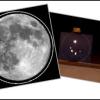
Magnification vs. Resolution: Can you see the flag on the Moon?
Source Institutions
This fun and simple hands-on astronomy activity lets learners explore the difference between telescope magnification and resolution.
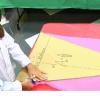
Full of Hot Air: Hot Air Balloon Building
Source Institutions
In this activity, learners create a model of a hot air balloon using tissue paper and a hairdryer. Educators can use this activity to introduce learners to density and its role in why things float.
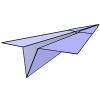
Paper Airplane Contest
Source Institutions
In this fun physics activity (page 9 of the pdf), learners take part in a paper airplane design challenge.

Paper Bridge
Source Institutions
In this engineering activity, challenge learners to construct a paper bridge that can support 100 pennies.
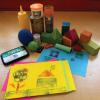
Shape Stamping
Source Institutions
In this activity, learners will explore two-dimensional shapes that are found in three-dimensional shapes. Learners will explore geometry, design, color and tool use through this activity.

Motor Effect
Source Institutions
See what force a magnet has on a wire that has current running through it: will it push it, pull it, or will nothing happen? This is the foundation of a simple electric motor.
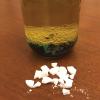
Lava Lamp
Source Institutions
In this activity, learners will create their own lava lamps. Learners will explore density, effervescence and chemistry through this activity.

Persistence of Vision
Source Institutions
If you had a long tube with a 5 millimeter wide slit, would you see the entire Golden Gate Bridge?

Aesop's Arithmetic
Source Institutions
In this activity (located on page 9 of the PDF), learners are introduced to Aesop's fable, "The Crow and the Pitcher." In the story, a clever crow drops pebbles into a pitcher to cause the water level
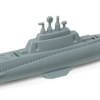
Diving Submarine
Source Institutions
Learners use a commercially available toy to experiment with density. They fill a chamber in the toy submarine with baking powder and release it into a tank of water.

Glider
Source Institutions
In this activity, learners construct paper airplanes that twist and turn.
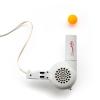
Balancing Ball: Suspend a ball in a stream of air
Source Institutions
Balance a ball in the air with a hair dryer! This Exploratorium produced activity shows learners concepts like lift and air streams. You can try many different angles, speeds, and ball types.

See the Light
Source Institutions
Learners mix a solution of luminol with hydrogen peroxide to produce a reaction that gives off blue light.
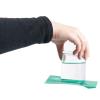
Gravity-Defying Water
Source Institutions
In this activity, learners explore gravity and air pressure as they experiment with holding a glass full of water upside down, without spilling it, using a simple piece of cardstock.

Lateral Inhibition
Source Institutions
Which one of your eyes are dominant? Do they act independently or are they equally "in control?" This activity explores how your eyes work (or don't work) together.
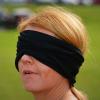
Two Ears are Better Than One: Sound Localization
Source Institutions
This activity (9th activity on the page) about hearing demonstrates to learners the importance of having two ears.
